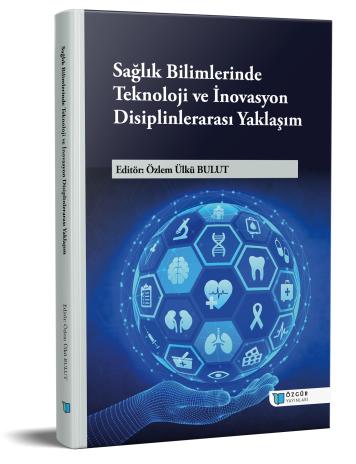
Technology and Innovation in Health Sciences: An Interdisciplinary Approach
Synopsis
The book “Technology and Innovation in Health Sciences: An Interdisciplinary Approach” comprehensively examines the paradigm shift taking place in healthcare during the digital transformation era, guiding health professionals, educators, and researchers to view technology-driven innovations from a holistic perspective.
Today, artificial intelligence, the metaverse, augmented and virtual reality, wearable sensor technologies, mobile health applications, and data-driven decision support systems are fundamentally transforming the nature of healthcare services. These technologies are reshaping not only clinical practices but also professional education processes, patient–caregiver interactions, remote monitoring, and counseling models.
Adopting an interdisciplinary perspective, the book explores the multidimensional impacts of this transformation through contemporary themes such as digital transformation in nursing, navigator nursing and telenavigation in gynecologic oncology, simulation-based teaching models in obstetrics and gynecology nursing, virtual reality applications in dental education, technologies supporting maternal and neonatal safety, and digital rehabilitation models in physiotherapy and occupational therapy.
Each chapter addresses the unique needs of its discipline and the processes of adapting to technological innovations, while holistically examining the dimensions of education, practice, ethics, and patient safety. The integration of metaverse-based learning environments, AI-supported clinical decision systems, and sensor-based monitoring technologies strengthens healthcare professionals’ knowledge, skills, and decision-making capacities, creating a new ecosystem that enhances both quality of care and patient safety.
Beyond introducing technological tools, this work also discusses the ethical responsibilities brought by digital transformation, the redefinition of professional competencies, and strategic approaches to sustainable healthcare delivery. Furthermore, the book provides original examples designed to enhance the digital literacy, AI awareness, simulation, and data-driven learning skills of future healthcare professionals, serving as a practical guide for both academic and clinical contexts. For all health professionals seeking to develop ethical, safe, and patient-centered practices in the digital era, this book stands as a significant and timely reference.

